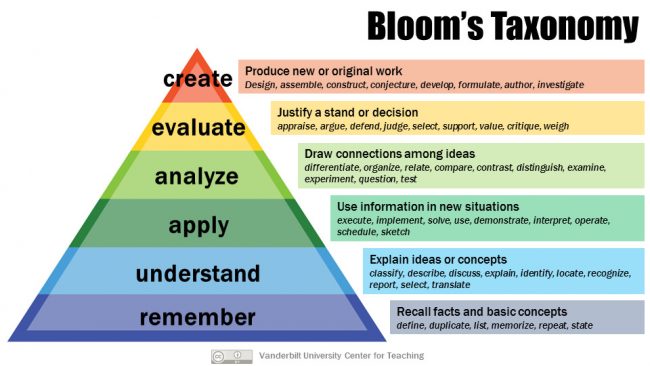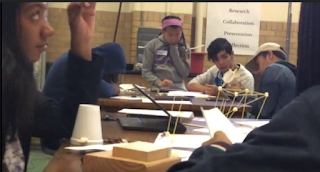Summary
For my project, I will be researching and reporting back to our group on the intersection of Intelligent Building and Education.
(Science Leadership Academy Bieber, Isaac Quelly, 2017)
Overview
For my project, I will be researching and reporting back to our group on the intersection of Intelligent Building and Education. When ever I tell people that I am an engineer that is also going to have my teaching degree, I always get strange looks. Many people do not see the intersection of engineering in education. One of my goals is to make this gap even smaller.
There are two ways that engineering and education intersect. There is, of course, literal engineering education. This would be we focus on literal engineering skills and content. Such as the engineering design process, making predictions about how things behave, or the application of their content knowlege into

The second way though is, well for lack of a more eloquent way to put this, for everything else. Engineering decision is the most ideal way to teach EVERYTHING. We know that students learn best via Inquiry, Project Based Instruction, and Constructivism. In a nutshell, teachers have to initiate the students asking the questions, designing the experiment, making the decisions, and doing the talking. You can see the Bloom's Taxonomy diagram on the right. Blooms clasigies learning (and learning goals/lessons) into how much cognitive demand is asked of the students. The higher the demand, the more they are learning, and the stronger the learning/retention is. But how does this relate to engineering? The top-most piece, creating, is a synonym for designing after all. So I'd argue ALL (or most) learning should take place within an educational scaffold.
For example, I wrote a week long engineering project last year. The project goals were to design the strongest or tallest spaghetti tower you could, and see how much load it could take before failure. The learning goals however were Newton's' First and Third Laws. By giving them a framework (haha) to explore around, they themselves built the towers, made design improvements, and asked the important questions. I could then add in content and correct misconceptions as they went. By the end of the week they were drawing free body diagrams and were about ready to start putting numbers and equations together. See video of them working on their towers (yes, that is actualy them working).
I believe that IB is an ideal area to get the students interested in IB. There are so many projects that they could be doing. For example, they could model the buildings around them, and try to solve issues that are meaningful to them. For example, how could the school save energy or be more green? Students know when what they are doing is repeating something that already exists, or when their ideas are novel. IB has the added benefit of being on the cutting edge.
The challenge of my project is the execution obviously, but not for the reasons you think. Not because of material availability, not because of classroom resources. I actualy think the problem is that it can become too broad. I, and many others, get so excited when we start to create lessons using engineering projects; and the students too. They feel good about their creations. The problem is that projects often become to big and broad. It is the teachers job to make sure the focus narrows back down to the manageable. Often times too, the class needs to move on before the students are ready since there is so much that we want to cover.
One thing that i have been thinking about lately, is there more than one definition? Is it an Intelligent Building as a noun, or as in the act of Intelligent building, a verb. One is the product we are creating and the other is how or why we are creating it. In fact, i think you could even split up the verb futhor. Is it simply the act of using technology or "smart stuff" to design, or does it actualy require that we make decisions having as much data as possible so we make the RIGHT decision (the intelligent one).
For my project, I will be researching and reporting back to our group on the intersection of Intelligent Building and Education.
(Science Leadership Academy Bieber, Isaac Quelly, 2017)
Overview
There are two ways that engineering and education intersect. There is, of course, literal engineering education. This would be we focus on literal engineering skills and content. Such as the engineering design process, making predictions about how things behave, or the application of their content knowlege into

The second way though is, well for lack of a more eloquent way to put this, for everything else. Engineering decision is the most ideal way to teach EVERYTHING. We know that students learn best via Inquiry, Project Based Instruction, and Constructivism. In a nutshell, teachers have to initiate the students asking the questions, designing the experiment, making the decisions, and doing the talking. You can see the Bloom's Taxonomy diagram on the right. Blooms clasigies learning (and learning goals/lessons) into how much cognitive demand is asked of the students. The higher the demand, the more they are learning, and the stronger the learning/retention is. But how does this relate to engineering? The top-most piece, creating, is a synonym for designing after all. So I'd argue ALL (or most) learning should take place within an educational scaffold.
For example, I wrote a week long engineering project last year. The project goals were to design the strongest or tallest spaghetti tower you could, and see how much load it could take before failure. The learning goals however were Newton's' First and Third Laws. By giving them a framework (haha) to explore around, they themselves built the towers, made design improvements, and asked the important questions. I could then add in content and correct misconceptions as they went. By the end of the week they were drawing free body diagrams and were about ready to start putting numbers and equations together. See video of them working on their towers (yes, that is actualy them working).
I believe that IB is an ideal area to get the students interested in IB. There are so many projects that they could be doing. For example, they could model the buildings around them, and try to solve issues that are meaningful to them. For example, how could the school save energy or be more green? Students know when what they are doing is repeating something that already exists, or when their ideas are novel. IB has the added benefit of being on the cutting edge.
The challenge of my project is the execution obviously, but not for the reasons you think. Not because of material availability, not because of classroom resources. I actualy think the problem is that it can become too broad. I, and many others, get so excited when we start to create lessons using engineering projects; and the students too. They feel good about their creations. The problem is that projects often become to big and broad. It is the teachers job to make sure the focus narrows back down to the manageable. Often times too, the class needs to move on before the students are ready since there is so much that we want to cover.
One thing that i have been thinking about lately, is there more than one definition? Is it an Intelligent Building as a noun, or as in the act of Intelligent building, a verb. One is the product we are creating and the other is how or why we are creating it. In fact, i think you could even split up the verb futhor. Is it simply the act of using technology or "smart stuff" to design, or does it actualy require that we make decisions having as much data as possible so we make the RIGHT decision (the intelligent one).
Commentary
- Sonny: One thing that i have been thinking about lately, is there more than one definition? Is it an Intelligent Building as a noun, or as in the act of Intelligent building, a verb. One is the product we are creating and the other is how or why we are creating it. In fact, i think you could even split up the verb futhor. Is it simply the act of using technology or "smart stuff" to design, or does it actualy require that we make decisions having as much data as possible so we make the RIGHT decision (the intelligent one).
- Maita, I'm particularly interested in if you think think an IB can be a green, or a green can be an IB. Even more interesting though, I would love to know how say a green building is not intelligent. I guess that depends on your definition of intelligent building.

Isaac,
ReplyDeleteI think it is great that you will be applying the engineering skills that you have learned here to teaching others. I think as engineers one of the things you learn how to do is learn new skills quickly and be able to apply them to various projects. This is a skill that can be applied to all fields and can be very valuable. I think in the future their will be more classes focused on technology and how it is implemented in various fields, so being up to date on new programs could be very valuable as an instructor.